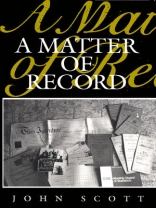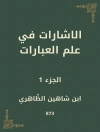This textbook aims to give an introduction to the use of documentary sources in social research. It is designed to be a companion to courses in research methods in the social sciences and history and a reference text for those beginning research on documentary sources. The book begins with an overview of the nature of social research and the variety of methods which can be used. Scott identifies three types of evidence useful in such research – physical evidence, personal evidence and documentary evidence. He argues that the logic of research is common to each type of evidence, but that each involves specific methodological issues. An appraisal grid for the analysis of documents is presented, showing the criteria which must be used in evaluating documentary sources. In the following chapters these criteria are applied to the variety of documentary sources available to the social researcher: census data and official statistics; government publications; directories and yearbooks; personal diaries and letters.
İçerik tablosu
List of Figures VII
Preface ix
1 Social Research and Documentary Sources 1
Evidence and data in social research 2
What are documents? 10
2 Assessing Documentary Sources 19
Authenticity: soundness and authorship 19
Credibility: sincerity and accuracy 22
Representativeness: survival and availability 24
Meaning: literal and interpretative understanding 28
3 The Use of Documents in Social Research 36
The search for King Arthur 38
Who wrote the Zinoviev letter? 43
The social meanings of suicide 48
Social research and the relativity of accounts 54
4 The Official Realm: Public and Private 59
The State, surveillance and secrecy 60
Official documents in the State 63
Official records in the private sphere 78
5 Administrative Routines and Situated Decisions 83
Conceptual instruments and administrative routines 84
Situated decisions 90
6 Explorations in Official Documents 96
Occupation, class and inequality 96
Class schemas and the problem of meaning 111
Measuring the class structure 117
The records of health, welfare and education 123
Business and industrial records 129
7 The Public Sphere and Mass Communication 136
Public opinion, the media and the audience 137
Images, content and meaning 143
Directories, almanacs and yearbooks 156
The annals of the rich and powerful 163
8 Personal Documents 173
Diaries, letters and autobiographies 174
Photographs and visual sources 185
Notes 198
Index 227
Yazar hakkında
John Scott is a reader in sociology at the University of Leicester, where he has taught since 1976. He is the author of `Directors of Industry’ (1984) and `Corporations, Classes and Capitalism’ (1979)












